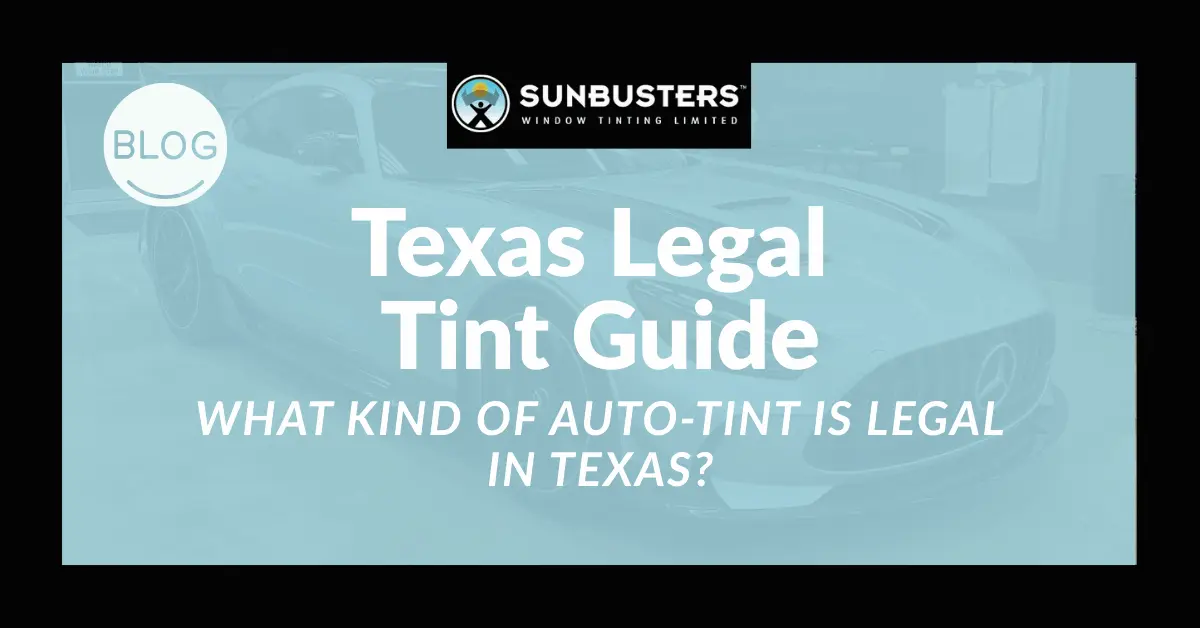

Automotive window tinting delivers many valuable benefits. It can protect your eyes, enhance privacy, reduce interior temperatures and prevent upholstery from fading. However, extremely dark glass may compromise safety. Texas Department of Public Safety enforces laws that govern the placement and darkness of tinting films. State approved vehicle safety inspections require that the vehicle’s glass be inspected to assure that it meets certain visible light transmission levels in order to pass inspection.
The Lone Star State requires windshield glass to allow at least 70% of outdoor light to enter vehicles. A tinted windshield must also have a luminous reflectance level that doesn’t exceed 25 percent. This number indicates the amount of light reflected by a window. Texas has banned red, amber and blue tints.
Texas law allows for the entire front windshield to be filmed/tinted with a “clear” un- tinted film that does not visibly alter or color the glass when viewed in natural daylight. In addition, a visor strip may be added to the top of the front windshield. The visor strip cannot fall below the AS-1 line that is marked on the windshield. If an AS-1 line is not present then the legal limit is no more than five inches from the top of the windshield.
The Texas tint law for the sides of a non commercial vehicle are simple. The front two doors must have a net ( tint film plus glass ) visible light transmission of at least 25%. There are no darkness restrictions on windows located behind the front two doors, as long as the vehicle is equipped with side view mirrors.
Some Texans have light-related health conditions, such as melanoma, lupus or photosensitivity. If you qualify for a medical exemption, you may use darker films on the windshield and the two side windows closest to the driver’s seat. You still can’t darken the part of the windshield below the AS-1 line.
The rear window is exempt from restriction with regard to tint film darkness if the vehicle is equipped with side view mirrors.
Some commercial and government autos needn’t comply with this state law. Buses, taxis and limousines qualify for an exemption if passengers pay to travel. Police cars can also have tinting that exceeds the legal limits.
Both drivers and film installers may face significant penalties when they don’t follow these rules. Texas law allows courts to levy fines of up to $1,000. If you buy a car with illegally tinted windows, the seller doesn’t have to pay any fines that you incur.
You can avoid penalties and ensure safety by using a professional window tinting service like Sunbusters. Our company has 23 years of experience in this field, so we know how to comply with all of the laws. Numerous auto dealers rely on us to install tinting films. To learn more, please contact Sunbusters today.